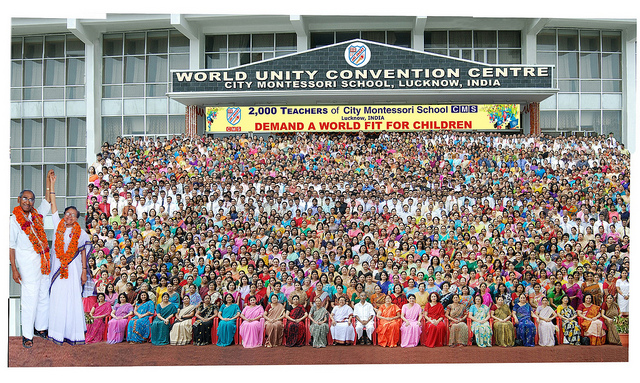 The recent events in Ukraine have been described as the most serious international diplomatic incident to have occurred since the end of the cold war. To those familiar with the power politics of that earlier time, the signs are eerily familiar; a sovereign country being destabilised by the actions of two competing power blocks; an egotistical Russian leader to whom the very idea of compromise is seen as a sign of weakness; cynical maneuvering by western leaders, for whom Ukraine itself is just a pawn in a larger game. Haven’t we been down this road before? Well, yes and no.
The recent events in Ukraine have been described as the most serious international diplomatic incident to have occurred since the end of the cold war. To those familiar with the power politics of that earlier time, the signs are eerily familiar; a sovereign country being destabilised by the actions of two competing power blocks; an egotistical Russian leader to whom the very idea of compromise is seen as a sign of weakness; cynical maneuvering by western leaders, for whom Ukraine itself is just a pawn in a larger game. Haven’t we been down this road before? Well, yes and no.
First it is important to realise that we live in a very different world to that of the cold war. Whereas the cold war landscape was defined by the competition between the Soviet block and the western powers, today’s Russia stands largely alone, with few international allies. On the western side, most countries are now more focused on economics and trade than on military and strategic goals. This was brought home recently by John Kerry, the US Secretary of State, who urged reluctant NATO partners to increase their military spending in the light of the situation in Ukraine.
The revolution in Ukraine is not really very different from revolutions that have occurred in other parts of the world in recent years, most notably during the so called Arab spring. It is just unfortunate for Ukrainians that the geographical location of their country makes it inevitable that Russia would feel the need to intervene, in order to protect what it sees as its interests. The saga of Ukraine has now moved beyond the control of Ukrainians; their voice has been drowned out in the rhetoric emanating from both East and West.
So why are we back at this point again? The world has so many social and environmental problems which need to be tackled as a matter of urgency, and here we are squabbling over the fate of a single country, which has every right to chose its own path in the world. The call for increased defence spending from Mr Kerry of all people is particularly disturbing, and suggests we have learned nothing since the cold war ended. In today’s world, where the signs of impending environmental collapse are becoming ever more obvious, military spending should be seen as an anachronism; a throwback to an earlier phase of human development. Viewed from this perspective, countries should rather be seeking to cut, and ultimately to eliminate, military spending altogether.
If we are to survive in the long term, our future will not be about heavily-armed countries facing off against each other. NATO currently has a standard that all its members should commit at least two percent of their GDP to defence spending. This is a huge resource which is essentially wasted. Imagine if this level of funding could instead be brought to bear on developing new non-polluting energy technologies, or on the environmentally friendly agricultural systems which will be needed to feed future human populations. These are the real issues we need to contend with, and they require international cooperation, rather than the trading of insults and tit for tat sanctions.
At the heart of the problem is the fact that we still tend to think of ourselves as being a series of disparate nation states, rather than as part of an evolving global civilisation. We are all ultimately working towards the same goals, but we frame them in national terms. So instead of coming up with solutions which advance the common good of humanity, we talk in terms of advancing the competitiveness of the US, or Britain, or China, or whatever nation we happen to identify with. Yet the whole idea of competitiveness implies that there can only be one winner; everyone else must inevitably lose the race. By focusing on national competitiveness rather than cooperation, we therefore do little to advance the aspirations of humanity as a whole.
The challenges which we now face are global in scope, and require solutions which do not stop at national borders. To come up with effective solutions, it is imperative that nations work together under a common framework. If progress is to be achieved, the implication is that some level of sovereignty will need to be ceded by national governments. In today’s world this may seem like a remote possibility, and indeed it is common for world leaders to talk up nationalistic and patriotic sentiments whenever they seek re-election. However, while the emphasis on globalisation over the last two decades has had many negative consequences, one positive aspect of this policy has been a softening of national boundaries. In addition, many countries have now entered into regional trade alliances, such as the EEC in Europe, or NAFTA in North America.
Although the focus of such alliances is on trade, these organisations do provide a template for a future world, in which perceived national interests are secondary to the greater good. The difference is that in the world of the future, science and sound environmental management need to be the primary drivers of policy, rather than trade. Conspiracy theorists like to talk of a new world order, ruled by a global elite, who somehow have managed to keep their plans for global domination secret from the rest of us unsuspecting members of the human race. However a globally unified society, with its priorities determined by what is good for the planet and for humanity as a whole, represents a logical way forward for the human race. This is not a coercive process, but rather a natural evolution which has already started, and which is likely to continue over the coming century.
We can get an idea of where we may be heading from science fiction. When we think of extraterrestrial civilisations, we always think of them as a single entity, not as being made up of competing power blocks. Right now if representatives of another civilisation were to try to make contact with us, their reception would be completely different if they landed in Russia, or the US, or China. Instead of speaking with a common voice, we are still fragmented, and this is one of the fundamental problems when it comes to taking effective action on global problems, such as climate change.
So does the current situation in Ukraine signal a return to the divisive politics of the cold war? Almost certainly not. At most it is likely to be a temporary setback on the road to a more unified world. The coming together of nations has initially been driven by trade and by globalisation. However in the future it is likely that cooperation will come about increasingly through a common need to tackle global problems. This is not a process which is likely to be completed anytime soon; it will likely take hundreds of years before a truly unified world emerges. However if current trends continue, this coming century will see significant advances in international cooperation, as we move away from seeing ourselves as disparate nation states, and start working together to shape our common future.
photo credit: cmseducation1 via photopin cc


